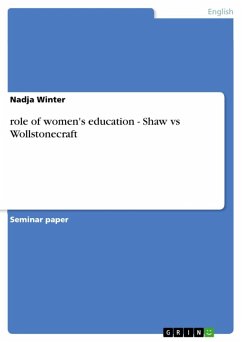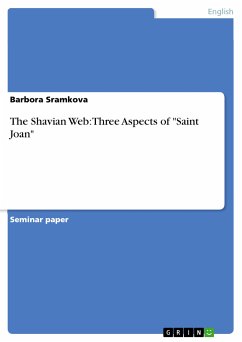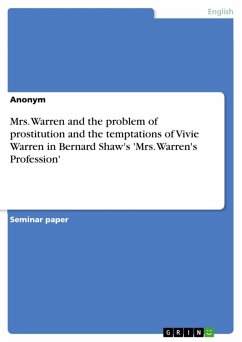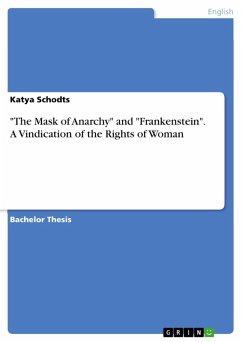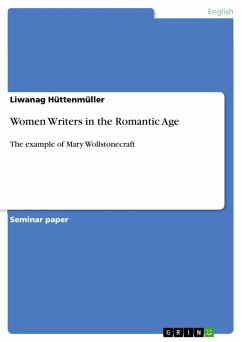Seminar paper from the year 2003 in the subject English Language and Literature Studies - Literature, grade: 2,5 (B), University of Applied Sciences Bingen (English Philology), course: PS II Literature: The (R)Evolution of Feminist Writing, language: English, abstract: Even a hundred years ago, the word "education" would have been rarely mentioned in connection with "women". Heated discussions addressed questions such as how far women should be educated, and what education would mean for them. Women's traditional and conventional tasks were generally seen in housekeeping, giving birth to many children, and to cater for the sexual needs of their husbands. This role model was based on the concept of the so-called one-sex model, in which the female sex did not exist at all, as people only thought of one human sex, the male sex. In contrast to modernity's formulation that men and women are "opposites", Thomas Laqueur proposed an early one-sex model in which women were seen as fundamentally the same, yet imperfect or failed, versions of men. They were said to be inferior, weaker, and more passive than their male counterparts. The status of the female sex could be compared to that of a slave, because women were totally - economically and physically - dependent on their fathers, and, later on, their husbands. Men saw the progressive development of women, and the female self-esteem, as a major risk for their own status and the system of patriarchy, which had been established by men throughout the past centuries. "[...] They were afraid that their wives might, if their value were recognized, become unruly and claim to be the heads of the household [...]." Partly due to the fact that "by law everything a woman possessed became the property of her husband when she married, [which had] the effect [that women had] to hand over [their] property to some person or persons [even] yet unborn before her marriage", this system forced women to be subjected not only to their husbands, but to all male family members. However, beginning with the period of Enlightenment in the late 18th century, the attitude towards the one-sex model gradually changed. More and more, people tried to distinguish between man and woman by referring to anatomic differences. The two-sex model started to emerge and claim a firm place in people's minds, and the one-sex model was finally viewed as overcome. Yet, the declared differences between the two sexes did not manifest successfully. Hence, the one-sex model remained like a shadow looming over the gender issues. Nevertheless, the female sex gained power, and women began to claim their rights.
Dieser Download kann aus rechtlichen Gründen nur mit Rechnungsadresse in A, B, BG, CY, CZ, D, DK, EW, E, FIN, F, GR, HR, H, IRL, I, LT, L, LR, M, NL, PL, P, R, S, SLO, SK ausgeliefert werden.

